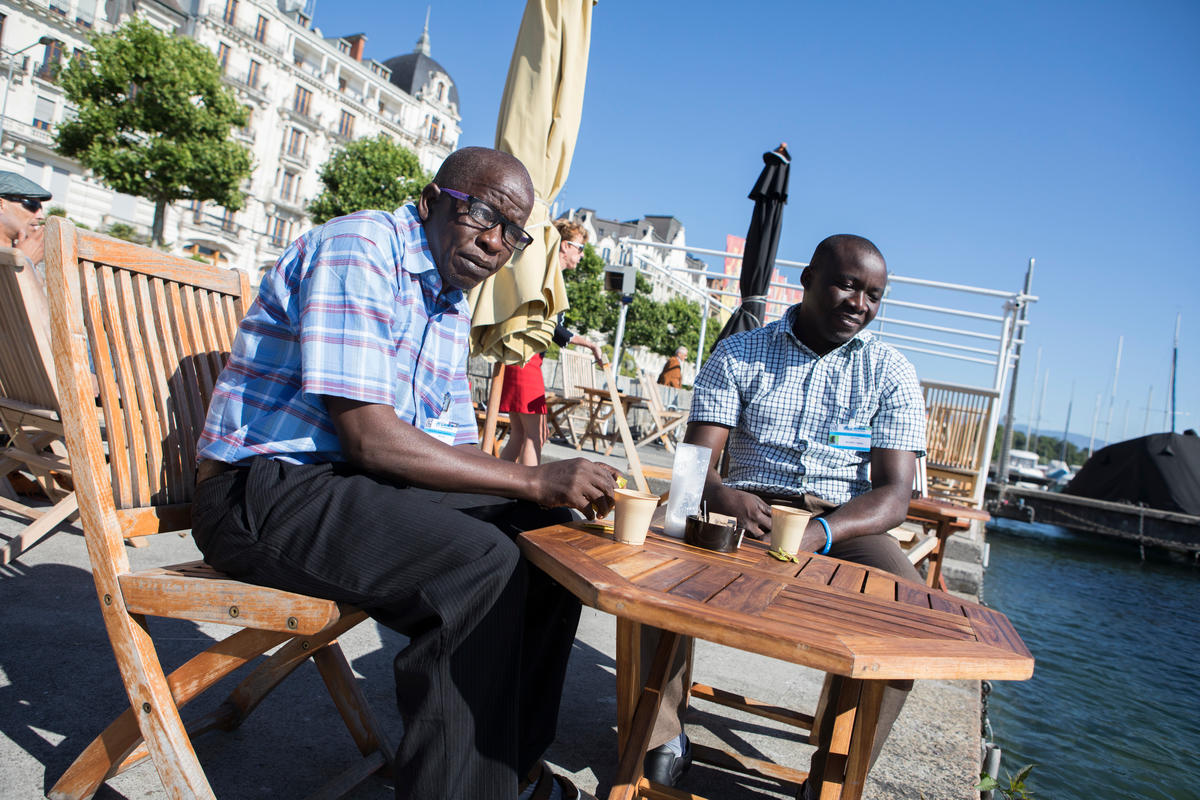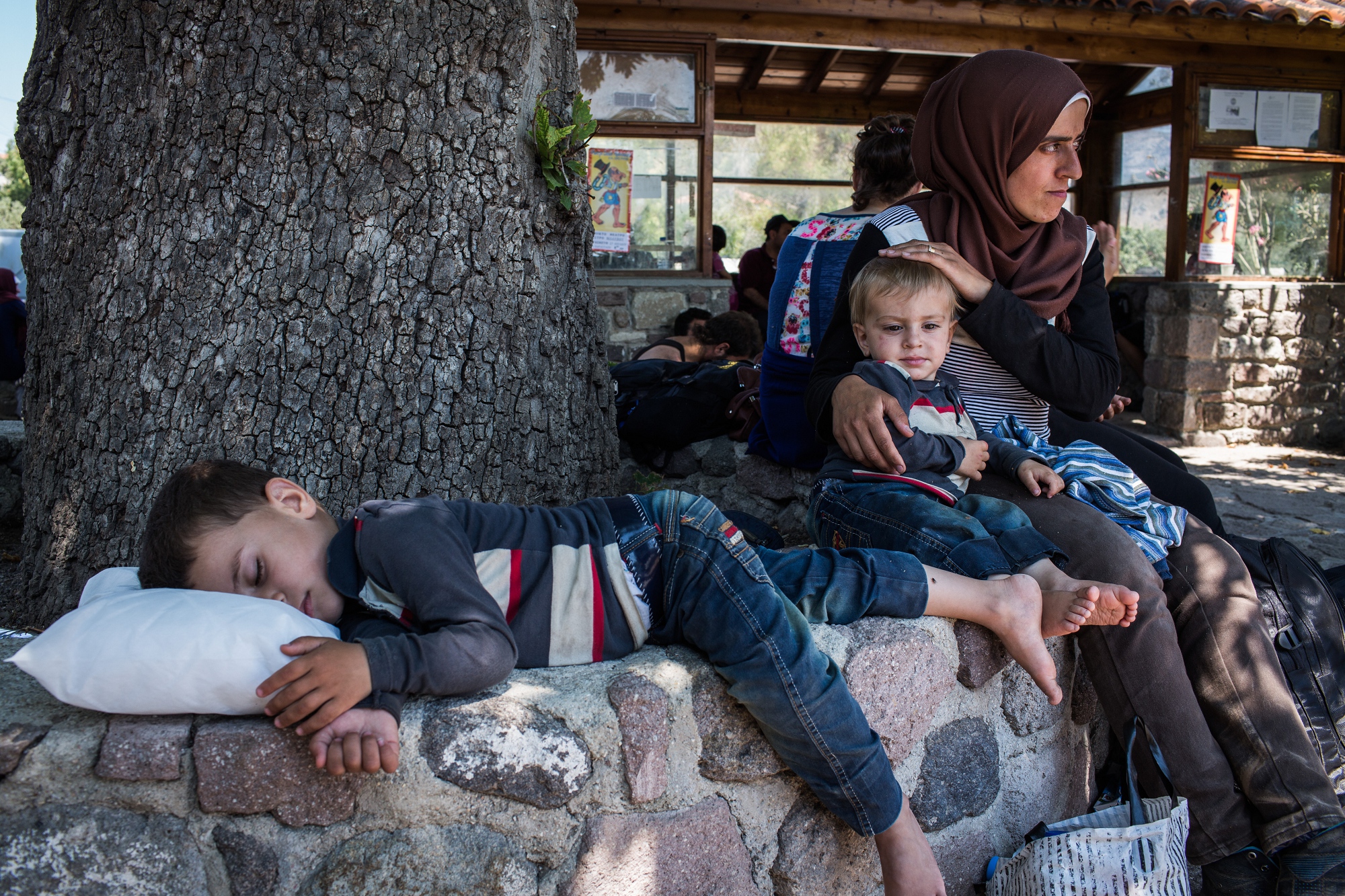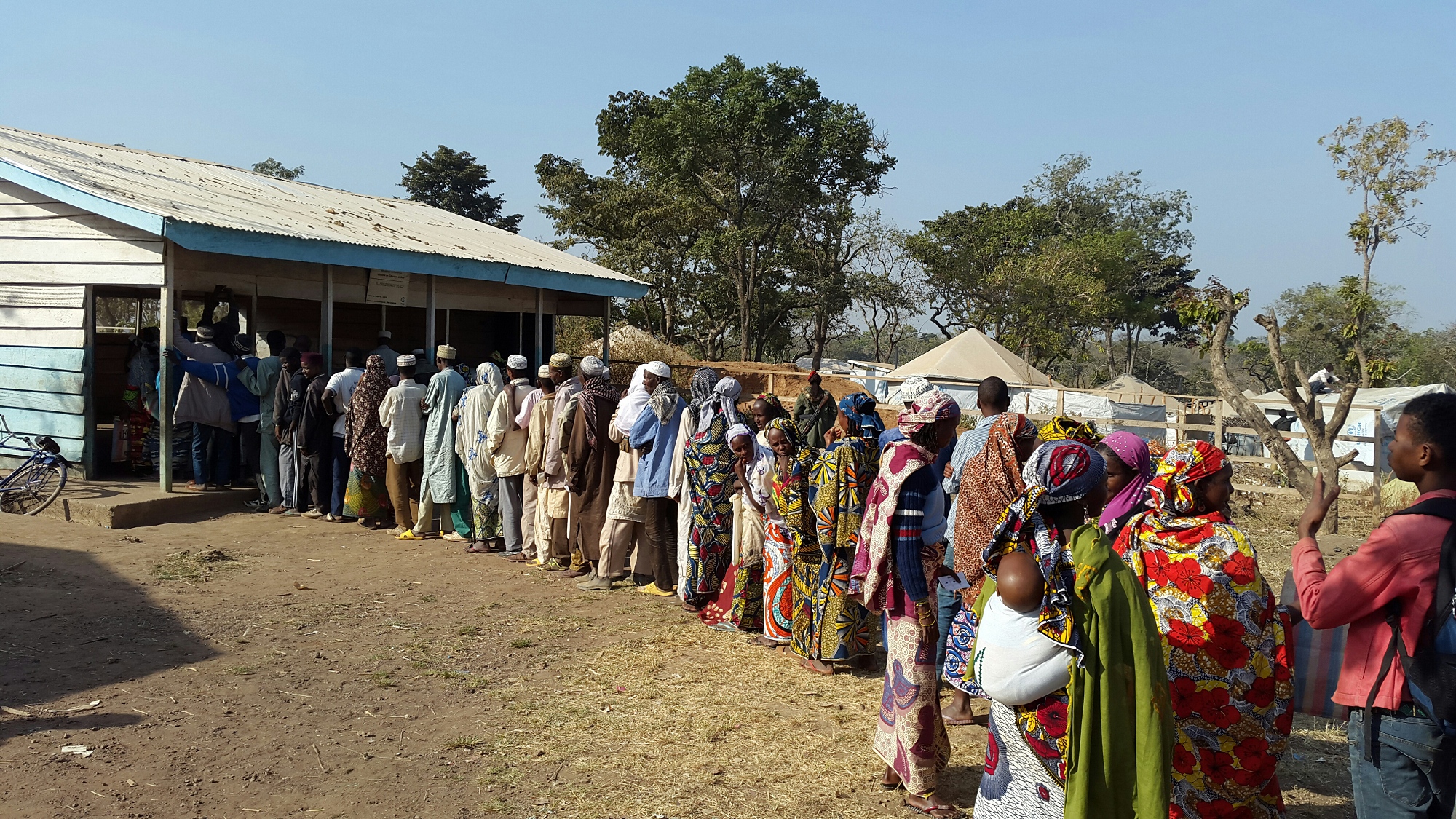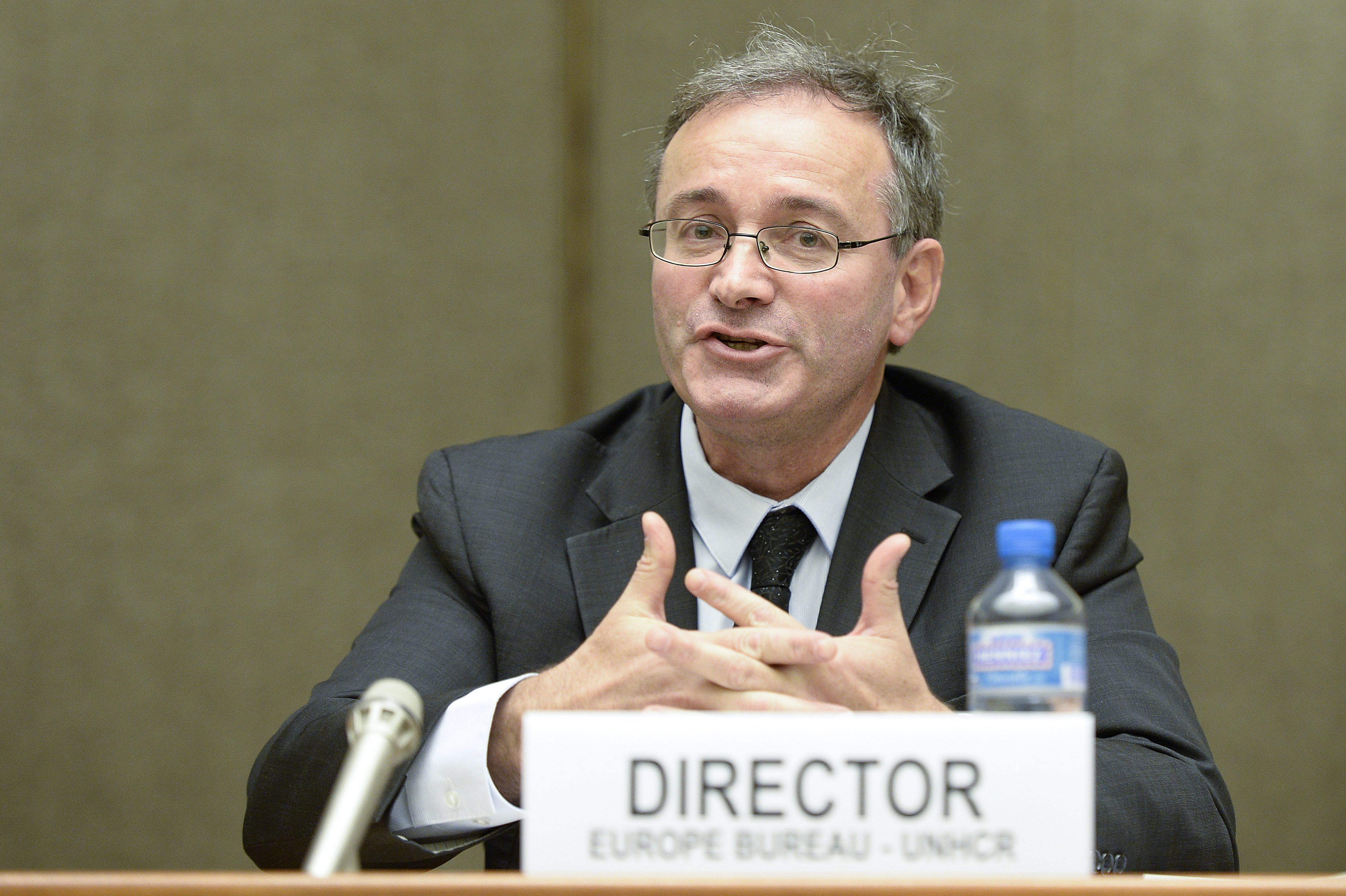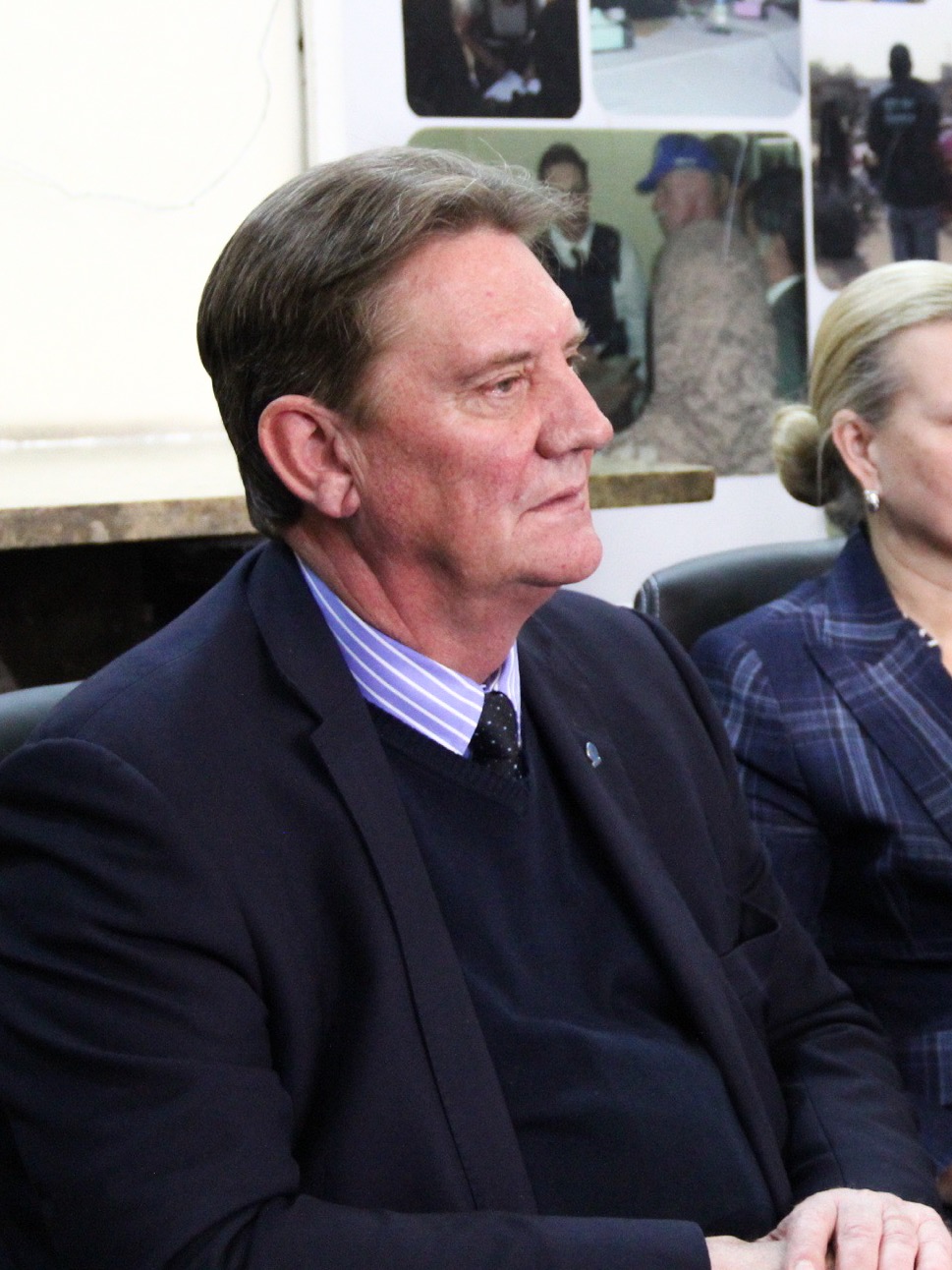Q&A : Museum shines light on refugee contribution to Reformation
Q&A : Museum shines light on refugee contribution to Reformation

GENEVA, June 8 (UNHCR) - French theologian Isabelle Graesslé is the director of Geneva's privately run International Museum of the Reformation, which recently was named the museum of the year by the Council of Europe. Located in the beautiful and historic Maison Mallet in old Geneva, the museum looks at the key Reformation movement started in the Swiss city by John Calvin (1509-1564) and its subsequent history. Geneva became a refuge for thousands of people forced to flee from Italy, France, the Netherlands and Scotland for religious reasons. Exhibits include a 1562 Bible, which was translated into English by noted Protestant exiles in Geneva. Graesslé, an ordained minister, talked about the museum and Protestant refugees with Web Editors Haude Morel and Leo Dobbs. Excerpts from the interview:
Tell us briefly about the origins and aims of the Reformation
Reformation of the [Roman Catholic] church was quite an old idea. The first reformers, especially [German theologian] Martin Luther, believed that it was possible to reform the church from the inside and to change the lives of believers from the inside. But there was a deepening crisis in the church, which needed money and tried to raise funds by creating a kind of market for the redemption of souls. The church said that if you wanted to go to paradise you could obtain forgiveness for your sins by buying what were called "papal indulgences." At the same time, the Bible was neither read nor understood by most people.
All this came to a head at the start of the 16th Century when the church came under attack from within and then from outside - first by Luther and then from Calvin. They led a strong reformation of traditional Catholic thinking about God, about spirituality. One idea was that everybody was free to read the Bible, which meant people had to be taught to read and write. Another major new idea was that everybody was free to make their own interpretation of the Bible. And when you read the Bible, you rediscover a God who is forgiving and not just judgemental.
Why was the museum opened in Geneva?
Because the Reformation is part of the history of Geneva and of Europe and the entire world. What happened in this city almost 500 years ago was the beginning of the second wave of the Reformation. The first was led by Luther in Germany. What started here with John Calvin provided a new way of thinking about God, about spirituality, about life. Life was seen quite differently. It was not only the Reformation; the Renaissance also brought a new understanding. But the Reformation movement that started in Geneva played a major role in shaping Europe and spread around the world.
Tell us a bit more about the museum and the Council of Europe prize.
The idea for the International Museum of Reformation in Geneva is an old one. About a century ago, local historians wanted to open a museum and began to gather some of the exhibits which are now in this place. Some books, some letters of Calvin and other manuscripts.... For a while the exhibits were displayed in a "Room of the Reformation," which was located in a house that no longer exists. This was closed in the 1920s when the League of Nations wanted to use the room for a telephone switchboard.
The idea for a museum was resurrected in the 1950s, when Calvin's Auditory [near Geneva's St. Pierre Cathedral] was rebuilt to mark the theologian's 450th anniversary. But there was no money, no time and no energy to follow through. Finally, at the end of the 20th century, Professor Olivier Fatio gathered the money, the people and the energy. Six months before the opening, they called me and said: "We have something for you; we would like you to be the director of this museum."
It opened on the 15th April, 2005. And since then we have had a lot of visitors, lots of Geneva people, Swiss people, but also a lot of foreigners coming from all over. People who believe in something, people who believe in nothing, people who are Protestant, people who are not.
It is interactive, modern and quite fun. People don't expect to laugh in a museum about the Reformation. They think it will be austere. But there are models, recordings of songs and hymns, projections of Calvin talking about predestination and Luther speaking French with a strong German accent.
This is probably what the Council of Europe liked when they visited a year ago. But still I was quite surprised, shocked, to receive their phone call saying; "You are the winner."
Some people might not associate refugees with the Reformation. How important were they?
There were a lot of refugees involved. In Geneva's case this was especially so after 1550-1560, when religious wars broke out - especially in France. A lot of Huguenot [French Calvinist] families came to Geneva, which was seen as the new Jerusalem, as a city of freedom which welcomed outsiders. The population doubled from 10,000 to 20,000 after the St Bartholomew's Day Massacre [August 24, 1572] - when some 3,000 people were killed in Paris and many more, then and later, in provincial towns in France. Calvin's successor, Théodore de Bèze, said he saw carts full of bleeding people arriving from Paris and other towns. He said he was so shocked that he could hardly eat and drink for three or four days.
That was in the 16th century. But France's Protestants were on the run again after Louis XIV revoked the Edict of Nantes in 1685. The edict has been issued by Henry IV in 1598 to grant the Huguenots substantial rights in the largely Catholic country. The Protestants were seen as a threat by the imperialist king of France. Many nobles and members of the bourgeoisie who favoured more democracy were Protestants. And so Protestantism was associated with a kind of political openness that was a threat to the King of France. Suddenly, 200,000 French Protestants decided to leave the country - about one quarter of all the Protestants in the country at that time.
Many of them wanted to go to Geneva, but they were less welcome this time because Geneva was worried about angering its powerful neighbour and risking invasion. Another problem was that this second wave of refugees included many well-educated people and skilled artisans in crafts such as watch-making and tailoring. Many people were worried that these people with their superior skills would take university places and gain political power.
It was not so easy. It is never easy when you have a massive arrival of refugee people anywhere in the world. Many fled to other parts of Switzerland.
You have a copy of the Geneva Bible dated 1562. Tell us about this Bible, one of the first complete printed bibles in the English language
The Geneva Bible was translated here by John Knox [father of the Church of Scotland who died in 1572] and some of the other people who came here [such as William Whittingham and Anthony Gilby] to escape repression under the rule of England's Mary Tudor. Here in Geneva, they gathered in the small Auditory on the other side of the cathedral and translated the Bible into English. Before the King James [or Authorized] version was published in 1611, the Geneva Bible was the English-language standard.
Are there still families in Geneva whose ancestors were refugees from that period?
Yes, definitely. For example, the founder of the museum - Olivier Fatio - has an Italian name and his family came from Tuscany in the 16th century. They were adherents of the Reformation and fled to Geneva because they were no longer accepted. Pretini is another Italian family, and Dominicé. A lot of the old Protestant families who helped make Geneva what it is today came here as refugees, especially during the first wave in the 16th Century. The second wave, moreover, was mostly French.
Should Geneva be proud of taking in these refugees during the Reformation?
I would say that it is not very Calvinist to be proud of something. I believe people here would say, "We have done what was needed to be done." I may have placed stress on the difficulties faced by the second refugee wave. But I would say that Geneva has it in its blood to be an open city to people who cannot worship or believe in the way they want to do in their own country.
I would say this history with the refugees - together with Geneva's openness - is probably one explanation for Geneva's status since the 1920s as an international city and cosmopolitan hub. Each time I travel abroad, it is amazing to hear about Geneva's image for openness and as a centre for international people, organizations and discussion.

